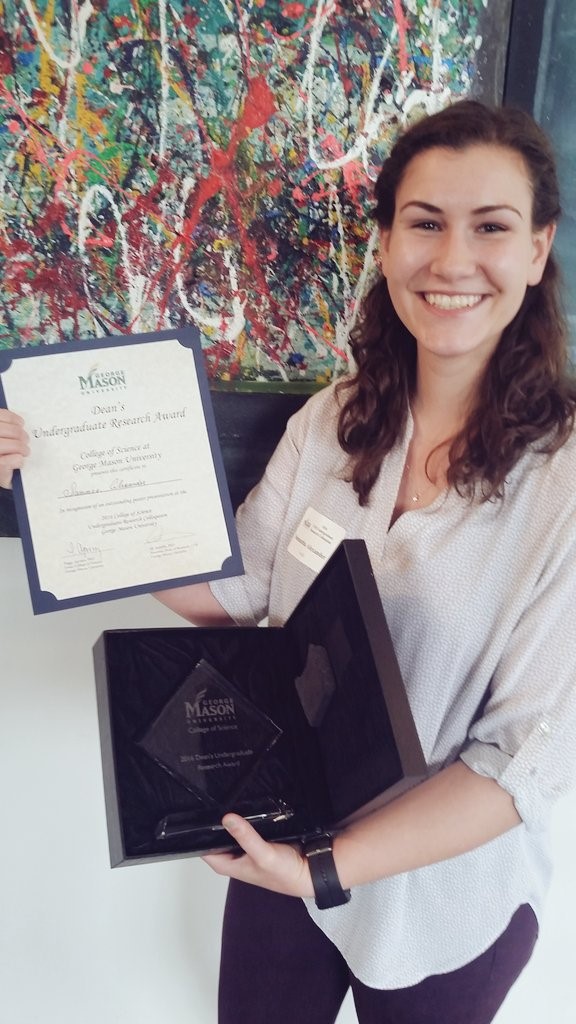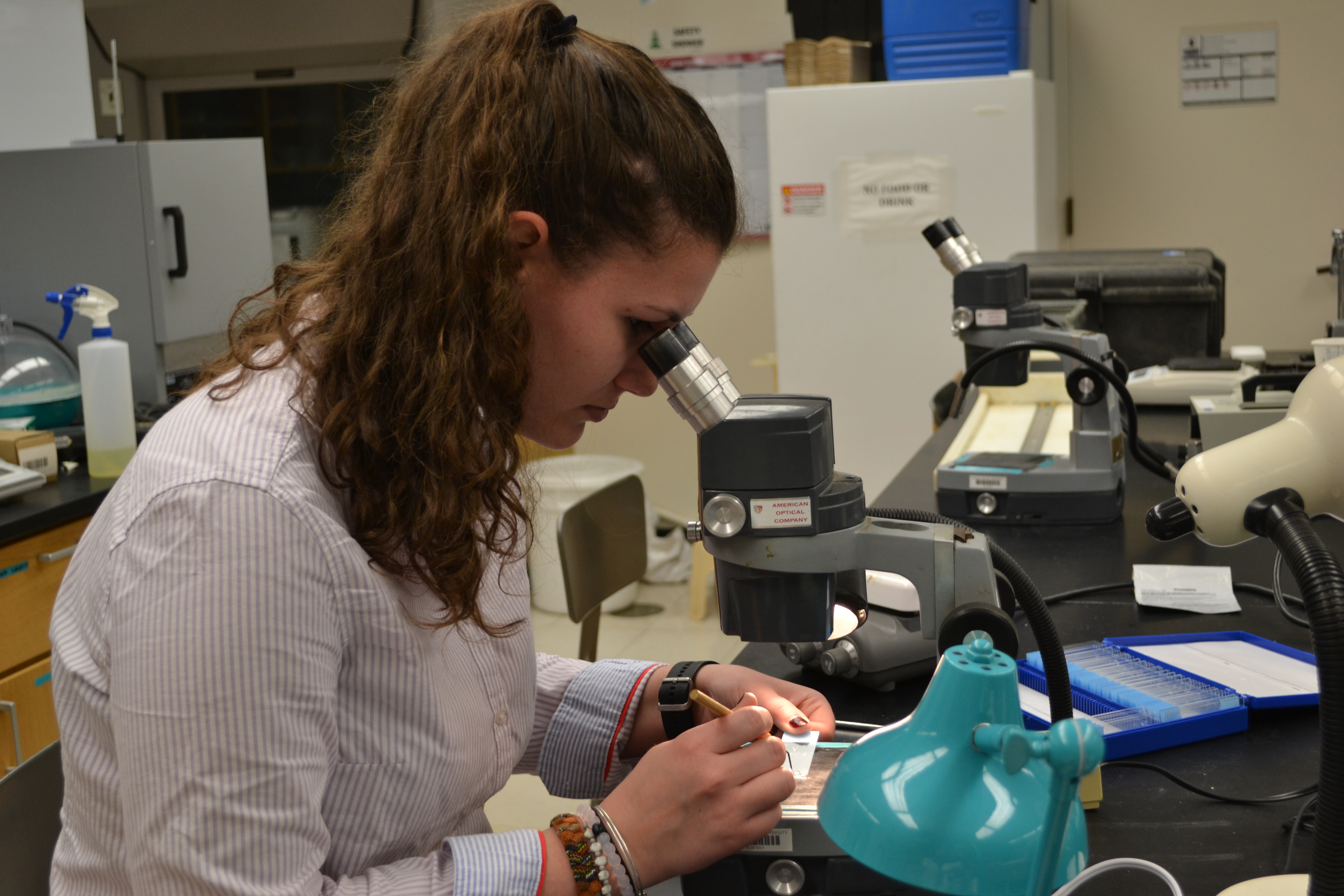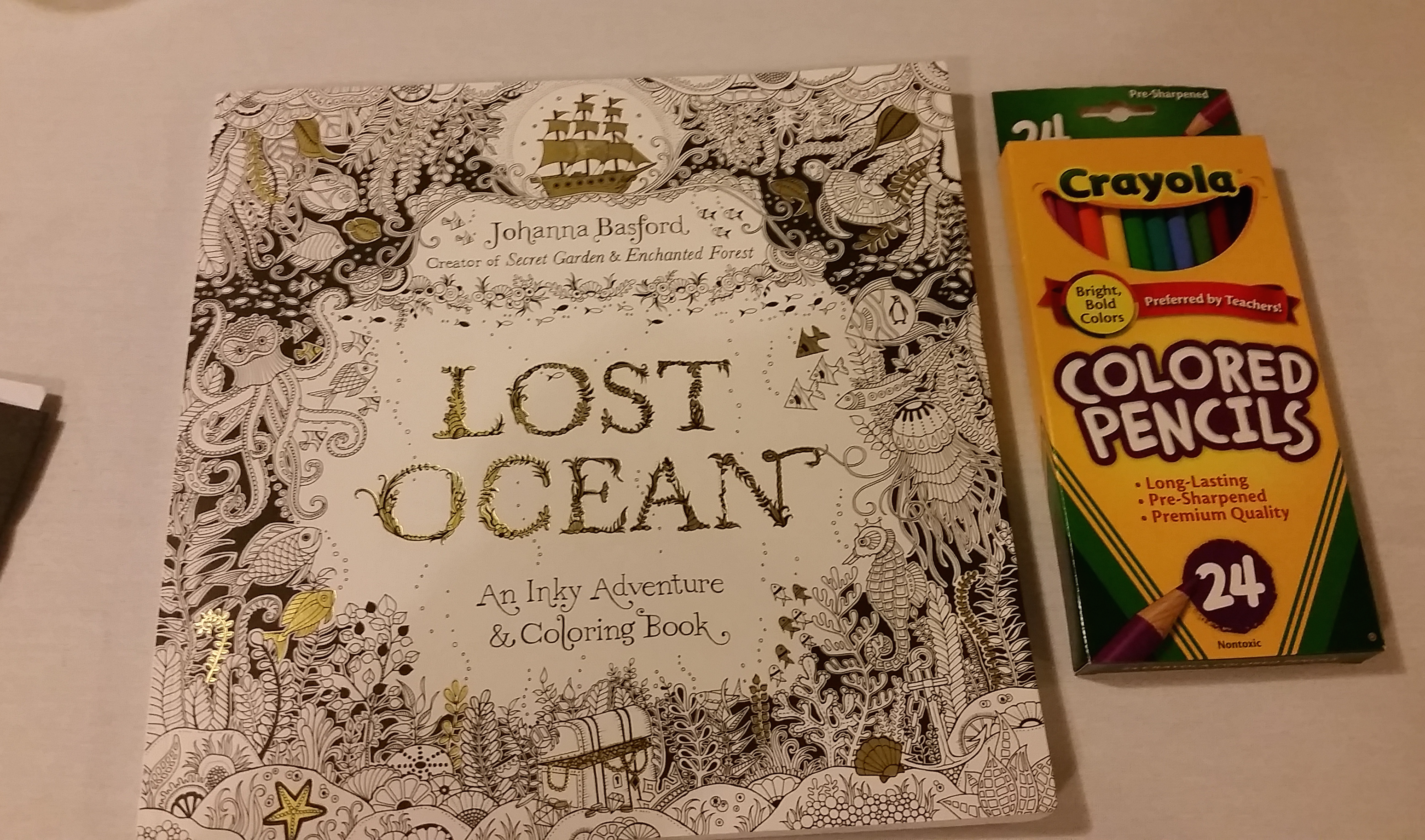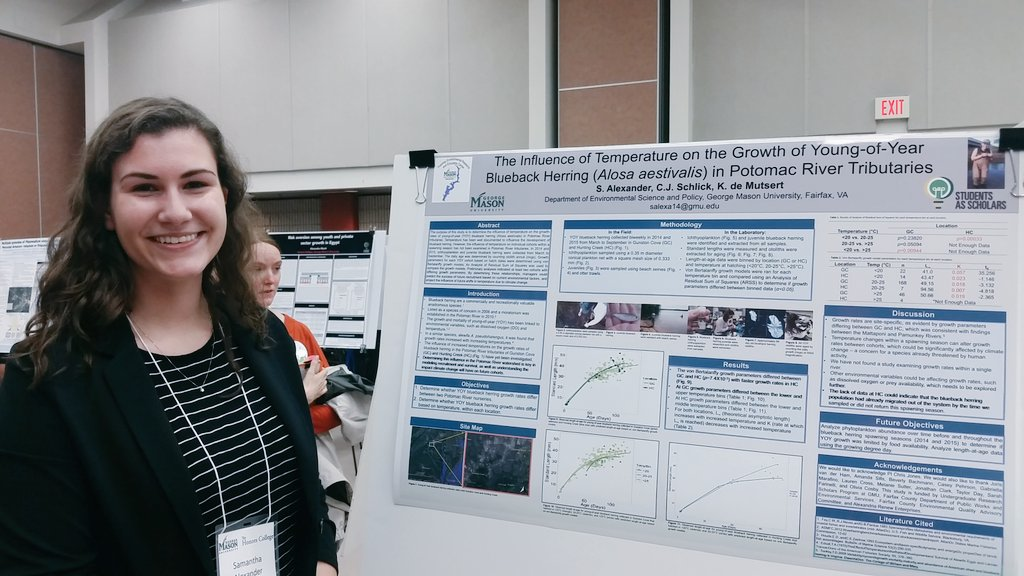By: Sammie Alexander

Photo of me with my College of Science Dean’s Undergraduate Research Award presented at the College of Science Undergraduate Research Colloquium.
The summer sun is out marking a bittersweet end to the busiest semester of my college career.
Let’s recap:
After volunteering in the Fish Ecology Lab for a semester I decided I wanted to begin conducting my own research. I had no clue what I wanted to study, but I knew I liked animals and ecosystems. Equipt with these vague interests and drive for exploration, I was partnered with PhD candidate (now Dr.!) C.J. Schlick to develop a research project branching from her work on river herring. Although it was July when I decided I wanted to conduct research, I had already missed the deadline to apply for the Fall 2015 OSCAR Undergraduate Research Scholars Program and would need to apply for the Spring 2016 cohort.
Tip: Plan ahead. Make note of deadlines as soon as they are available to you. GMU students: If you are interested in participating in undergraduate research, visit the OSCAR Undergraduate Research Scholars page where all deadlines are posted.
A majority of the Fall 2015 semester was spent preparing my 11 page narrative detailing the who, what, when, where, and why of my research plan. This was the first time I had ever been required to present a plan of this nature and extent, and it was no small feat. Prior to submitting my application, I attended a narrative draft meeting to ask questions and learn tips on how to write an effective narrative. At the beginning of the session, students were asked to share their intended project topic. Students shared questions from neuroscience related topics far beyond my comprehension to the impacts of variations in the political structures of foreign countries’ economies. I slowly felt my chances of getting selected for the program slipping away.
Tip: Comparing fish ecology to the assessment of foreign nations’ war strategies doesn’t work – so don’t compare them.
After quite literally a dozen drafts, I finally submitted my narrative to OSCAR and patiently waited for a response. Applicants were notified in late December, and to my surprise I had been selected. This meant that Spring 2016 would be filled with 18 credits, a weekend job, and a research project. To clarify, this semester was hard, took more than a few pep talks, and required a lot of coffee, BUT it was not impossible.
Tip: Positive thinking does wonders. Visualizing WORKS. You will be more productive following 8 hours of sleep instead of 2.
Spring 2016 consisted of numerous hours dissecting blueback herring (fish), extracting otoliths (earbones), aging fish, and making posters to present at colloquiums, conferences, and symposiums. I enjoyed the lab work I did for my project because, while tedious, I felt a sense of accomplishment at the end of every day. The routine of the lab work also provided me a much needed break from my normal school work. Sometimes it felt like a deadline or presentation was every other day, but I made it through.
Now to reflect on my favorite parts of participating in OSCAR:
-I found a love for dissecting blueback herring and exctracting their otoliths. So cool! Every time I find an otolith I felt like I had found an exciting treasure. You think I’m kidding but it’s thrilling.

-Each day that I worked alongside my mentor, C.J. Schlick, I felt inspired. Her extensive knowledge of the fish we studied never ceased to amaze me. Aside from her knowledge about fish, she continuously encouraged me to extend my reach within the scientific community through attending conferences.
-As a second year undergraduate, conferences did not sound fun. The key word, “networking”, terrified me. Why do I need to talk to strangers? Here’s why: these strangers are awesome. Imagine hosting a party with all of your friends who care about the same things you do while getting to eat food and learn new things about your favorite topic for 2-3 consecutive days. It’s great. Not to mention, there is almost always a raffle – who doesn’t like prizes? Beyond the raffles, there are usually also prizes awarded to people with the best presentations, posters, etc. I can’t explain how surprised I was each time I won an award this past semester. Overall, each conference left me feeling inspired to continue conducting research in order to solve the everyday challenges we face on a changing planet.

Raffle winnings at the American Fisheries Society-Tidewater Chapter.

Presenting a poster at the George Mason Unversity Honors College Spring 2016 Research Exhibition.